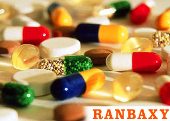 | « Back to article | Print this article |
 If Daiichi Sankyo, Japanese parent of Ranbaxy Laboratories, decides to pursue arbitration against the latter’s previous promoters, this might be in Singapore, it is learnt.
If Daiichi Sankyo, Japanese parent of Ranbaxy Laboratories, decides to pursue arbitration against the latter’s previous promoters, this might be in Singapore, it is learnt.
According to sources in the know, the agreement signed between Daiichi Sankyo and the former promoters of Ranbaxy in 2008, at the time of purchase of the latter by the former, contains a provision to this effect.
On May 13, Ranbaxy pleaded guilty in the US of making fraudulent statements to the US Food and Drug Administration related to testing of drugs in the past for gaining approvals.
The company also agreed to pay a fine of $500 million.
On May 22, Daiichi said it was evaluating legal remedies against the former promoters for hiding critical information related to investigations by the FDA and the US department of justice at the time of purchase.
“Daiichi Sankyo believes that certain former shareholders of Ranbaxy concealed and misrepresented critical information concerning the DOJ and FDA investigations.
“Daiichi Sankyo is currently pursuing its available legal remedies and cannot comment further on the subject at this time,” the Japanese drug maker had said.
Asked on the arbitration issue, Daiichi Sankyo said in an e-mail response to a questionnaire sent by Business Standard, “As we mentioned in the previous release, we will not be commenting further at this time.”
Singapore is considered the hub for arbitration in Asia, according to Arun Chawla, assistant secretary general, Federation of Indian Chambers of Commerce and Industry.
“The institutional arbitration structure is very strong in Singapore. Unlike India, where arbitrations are essentially carried out in English, institutions in Singapore have the capability to arrange for various laws and languages,”